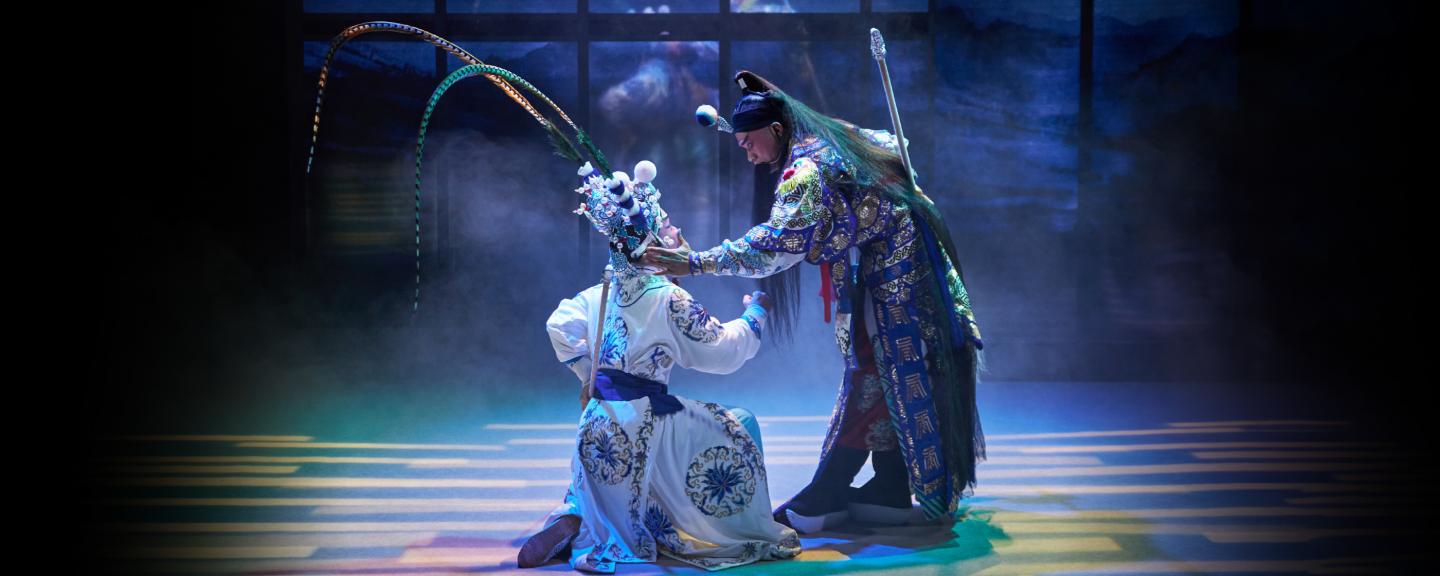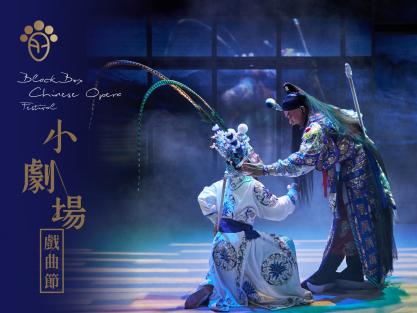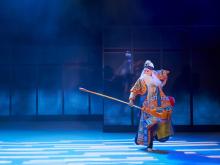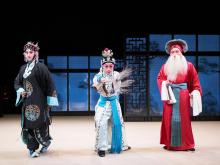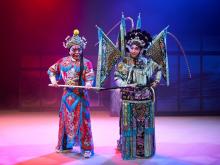Main
Description
The Xiqu Centre’s second experimental Cantonese opera production combines traditional and new set pieces, digital backdrops and other modern theatre technology to illustrate the preservation and innovation of Cantonese opera in the modern era.
Awards
- “Best Play (Contemporary Small Theatre–Xiqu category)” by Beijing New Arts and Culture Outstanding Theatre Showcase Series 2019
- “Best Performer (Contemporary Small Theatre–Xiqu category)” (Keith Lai) by Beijing New Arts and Culture Outstanding Theatre Showcase Series 2019
- “Honorary Credential Award” by Xiqu Opera Black Box Festival (Beijing) 2019
“A powerful performance, and a well-deserved Best Actor win for Keith Lai.”
── Pak Yiu-charn, Hong Kong theatre artist
“A clever blend of tradition and technology…Needless to say the actors’ hard work in portraying the characters.”
── Ms Ng Mei-ying, Cantonese opera veteran
Title Sponsor:
Produced by:

Artistic and Production Team:
Producer / Director: Naomi Chung*
Playwrights / Directors / Music Arrangers: Keith Lai, Janet Wong
Technical Director: Rae Wu*
Set Designer: Wong Yat-kwan
Lighting Designer: Leo Siu
Sound Designer: Wan San-hong
Sound Designer (2019 Beijing Premiere): Anthony Yeung
Video Designer: Dan Fong
Assistant Producer: Peter Lee*
Production Managers: Fanny Lo*, Katrina Chan*
Producer’s assistants: Novia Chong, *Hazel Yau*
Cast:
Keith Lai as Yang Jiye/Yang Zongbao
Janet Wong as Yang Qiniang (Du Jiner)
Ng Lap-hei as Yang Wenguang
Shum Pak-chuen as Yang Hong/Wang Wen
Musicians:
Ensemble Leader: Mao Yijun
Percussion Ensemble Leader: Chan Ting-pong
Musicians: (In alphabetical order): Chen Yifan, He Zhuotao, Ho Cheuk-chun, Lai Ka-wai, Leung Shuk-in, Ko Wing-hei, So Siu-fun, Wong Yuen-ling, Zhong Shi-ling
*Staff of West Kowloon Cultural District
Additional info
Tabs
Following on from the Xiqu Centre’s first experimental Cantonese opera production – Farewell My Concubine (New Adaptation), a contemporary reinterpretation of a traditional classic showcasing the evolution of Cantonese opera – this second production, Wenguang Explores the Valley, reinterprets a classic warrior legend as a contemplation of the preservation and innovation of Cantonese opera in the modern era.
Retaining the original plot structure and a number of set pieces – including “The Great Battle”, “The Besieged Valley”, and the classic song “Yang Jiye Crashes into the Stone Tablet” – the work also incorporates several new scenes, such as a pivotal act where the late general Yang Jiye appears to his grandson Wenguang in a dream. As well as the addition of original script, the production replaces traditional backdrops with digital projections – both realistic and abstract, static and animated – offering a multi-layered illusory element to the settings and battle scenes. In one newly created scene, a key character moves among the audience to find an important book, reminding spectators that the things we seek are often right there beside us.
Based on the historic legends of the Yang family generals, the story opens with protagonist Wenguang contemplating the past glories and defeats of his clan – an analogy for the legacy of Cantonese opera. Then, through scenes of past Yang battles and debates between influential figures, the production contemplates the value and meaning of ancient traditions for our modern age, turning a classic tale of bravery and heroism into an exploration of cultural legacy.
Cantonese Opera
Originating in the Guangzhou region of southern China, Cantonese opera is a genre of Chinese traditional theatre that is popular in Guangdong, Guangxi, Hong Kong and Macau, as well as the Chinese diaspora in Southeast Asia, America and Europe. The singing style adopts elements of bangzi and erhuang (traditional vocal and phrasing styles), and combines tunes of various origins, including set tunes from gaoqiang (high-pitched) and Kunqu genres and elements of folk narrative singing. Cantonese opera was inscribed onto the UNESCO Representative List of the Intangible Cultural Heritage of Humanity in 2009.
